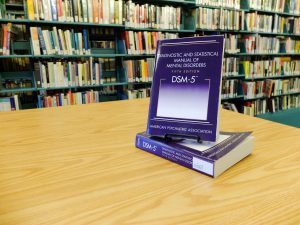13.3 DSM as a Cultural Document

The Diagnostic and Statistical Manual of Mental Disorders (DSM) is a classification system that describes and categorizes symptoms of mental disorders. The DSM is currently in its fifth edition (DSM-5) and is widely used by clinicians to make diagnoses for patients. The DSM is an essential resource as it creates order and standardization for the classification of psychological disorders, which is necessary for scientific study, consistent diagnosis, and treatment recommendations. However, the DSM has also been criticized for several reasons, such as an overreliance on the medical model, which views mental disorders as medical conditions similar to physical diseases. It therefore emphasizes biological causes, such as genetic predispositions, structural abnormalities in the brain, and imbalances in brain chemistry, rather than social, cultural, cognitive, and behavioral reasons for the development and maintenance of disorders.
It has also been described as casting too wide a net and including too many possible disorders and symptoms, resulting in the potential for overdiagnosis. Another important criticism is the cultural bias that the DSM represents. Although the DSM-5 includes sections on cultural issues and cultural formation for case conceptualization of clients as well as a glossary of cultural concepts of distress, the entire DSM endeavor itself can be seen as a culture-bound document as it reflects Western European and U.S.-centric perspectives, research, and definitions of mental illness. A simple example is the overall description of major depression, which is frequently explained to students as when patients describe feeling “sad” or “blue” most of the day, nearly every day. The association of the color blue with the emotion of sadness is a unique construct in English. Many other cultures, such as Mexican culture (Lackey, 2008) and Chinese culture (Lee et al., 2007), experience depression symptoms as an attack of nerves or other somatic symptoms. However, these symptoms are not described as core depression symptoms in the DSM.
Media Attributions
- DSM-5 © Unknown is licensed under a CC BY-NC (Attribution NonCommercial) license
